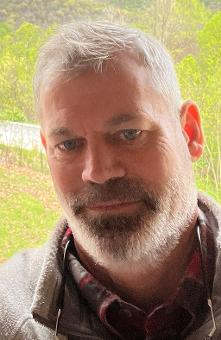Rain drummed, then tapped all night, before changing to snow.
Around dawn, limbs popped like gunshots and, three days later,
I was thirty feet up a curly willow, looking down on houses
gutter to gutter. Salt-melt in the alley. Across the street,
two mechanics twisting stubs into a sand-filled coffee can and,
fingers numbing, I had no inkling of the body-doubling pain
that would force me down the ladder, into the emergency room—
to a doc-in-the-box because it had to be cheaper, then back
to the emergency room because, by then, I could hardly stand.
Now that I’ve survived five years—albeit cut back by three surgeries
and two bouts of chemo, folks look at me like I ought to know something.
Do you pray? they ask. We prayed for you every day. Well, I say,
I go for short hikes or, sometimes, just sit in the kitchen glassing birds.
This satisfies the majority. Others nod, though, wanting more. So, once,
I told this one: last week a friend took me to the state park. Blackwater.
You know. To the cliff overlook. We walk past the slot binoculars
and onto a rock slab jutting like a ship’s prow above the canyon.
Downriver, dark water like a black thread stitched through green.
I squat, edge toward the rock’s lip, then swing my legs into the void.
What happened? they ask. Arms prickling, I see, again, the vulture rising
updraft like a kite. Nothing, I say. You should try it.

Bill King grew up in the Blue Ridge Mountains of southwestern Virginia. He is the 2021 Heartwood Poetry Prize winner and a Pushcart Prize nominee. His work has appeared or is forthcoming in Kestrel, Appalachian Review, What Things Cost: an anthology for the people (University of Kentucky Press), 100 Word Story, Naugatuck River Review, and many other journals and anthologies. He holds an M.A. in Creative Writing and a Ph.D. in Literature from the University of Georgia and teaches creative writing and literature at Davis & Elkins College in Elkins, West Virginia. His chapbook, from Finishing Line Press, is The Letting Go (2018). His first full-length poetry collection, Bloodroot, will be released in 2023 (Mercer University Press).
